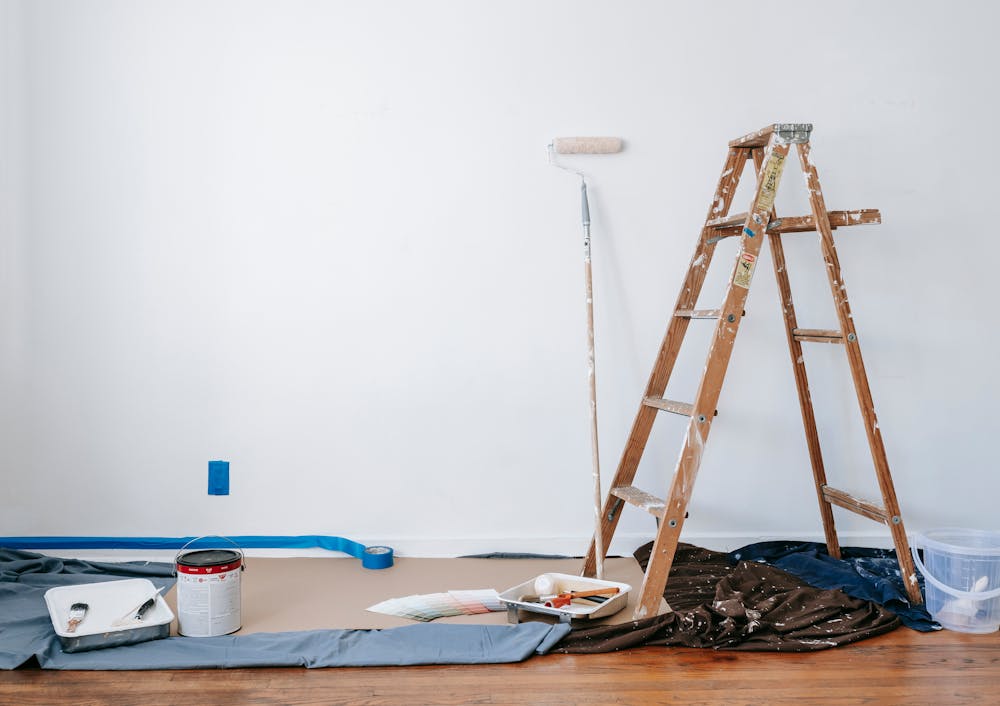Home renovations are exciting, offering homeowners the chance to improve and personalize their living spaces. However, one aspect often overlooked during the planning stages is the disposal of renovation waste. Proper waste disposal is crucial, not only for maintaining a clean and safe work environment but also for protecting the environment. This guide will provide comprehensive insights into responsible waste disposal for home renovations in Orlando, highlighting key practices and local resources available.
Understanding Orlando Waste Management Regulations
When undertaking a home renovation in Orlando, it’s essential to familiarize yourself with local waste management regulations. Orlando waste management has specific guidelines and protocols that must be followed to ensure waste is disposed of correctly. These regulations are in place to protect the environment and public health. For example, certain materials, such as hazardous and electronic waste, require special handling and cannot be simply tossed in regular trash bins.
Before starting your renovation project, take the time to research the local regulations. The City of Orlando’s official website provides valuable information on what materials are considered hazardous, how to dispose of them, and where you can take them for proper disposal. Understanding these regulations will help you plan your waste disposal strategy more effectively and avoid potential fines or legal issues.
Sorting and Separating Renovation Waste
One of the first steps in responsible waste disposal is sorting and separating different types of renovation waste. This process makes disposal more efficient and ensures that recyclable and reusable materials do not end up in landfills. Common categories of renovation waste include:
- Construction Debris: This includes wood, drywall, bricks, and tiles. Many of these items can be recycled or repurposed.
- Hazardous Materials: Paints, solvents, asbestos, and certain types of insulation fall into this category and require special handling.
- Electronic Waste: Old appliances, wiring, and electronic fixtures must be disposed of at designated e-waste facilities.
- General Trash: Non-recyclable and non-hazardous materials can be disposed of in regular trash bins.
Separating these materials ensures that each type of waste is handled appropriately, minimizing environmental impact and potentially reducing disposal costs.
Utilizing Local Disposal Services
Orlando has its own local disposal services that will help homeowners with their waste disposal during a renovation project. One such service is Waste Removal USA, a company that offers waste removal solutions to contractors who specialize in renovations. Enlisting the services of a professional solution will also help avoid spending a lot of time on waste removal and disposal and ensure compliance with the legislation of the given region.
Waste Removal USA provides flexible dumpster rental services. They can give you an appropriate-sized dumpster to use according to your project. This service entails the removal of all construction waste, all hazardous waste, and all general waste within the construction site. Furthermore, they offer the recycling of such items, as they can reuse them, hence minimizing the effects of the renovation.
Recycling and Reusing Materials
Chris correctly argues that recycling and reusing materials are part of proper waste management strategies. Not only does it lead to an overall decrease in the amount of waste dumped into landfills, but natural resources and energy are also protected. The recycling potential of construction materials is high; metals, concrete, and some types of plastics are easily recycled.
Other recycling centers and facilities available in Orlando to accept construction debris include: First, consider whether the material can be recycled or if it can be given to another department for reuse. For instance, the wooden material can be preserved for future use in a do-it-yourself project, or bricks can be reclaimed for hardscaping. In this way, you can save not only your money but also have less negative impact on the environment of the house that you want to renovate.
Hazardous Waste Disposal
Safe disposal of potentially dangerous waste materials is essential to minimize the environmental risks and harm to human beings. When you are retrofitting, you can come across some materials, for instance, asbestos, lead paint, and some chemicals, that should be dealt with sparingly. Suppose there is any hazardous waste in Orlando. In that case, they should be properly disposed of through the facilities provided by the Orlando government, and the laid down rules and regulations should do this.
Contact regional waste management agencies to dispose of hazardous products such as old paint cans, solvents, and batteries. Never throw dangerous waste in ordinary trash cans, as this has disastrous effects on the environment and people’s health.
Conclusion
Renovations done to homes are a great chance to improve a house’s look and functionality and the property’s value. However, one should not overlook the environmental aspects of one’s project as they play an essential role in project development. Thus, you can follow the measures to help you avoid mistakes and make your renovation effective and sustainable.
Local legislation, waste segregation and collection, hiring appropriate waste disposal agencies such as Waste Removal USA, and finally, using proper recycling and recycling methods are some of the things involved in this process. In doing so, you make Orlando a cleaner, safer, and more sustainable place to live and make a difference in the world.





